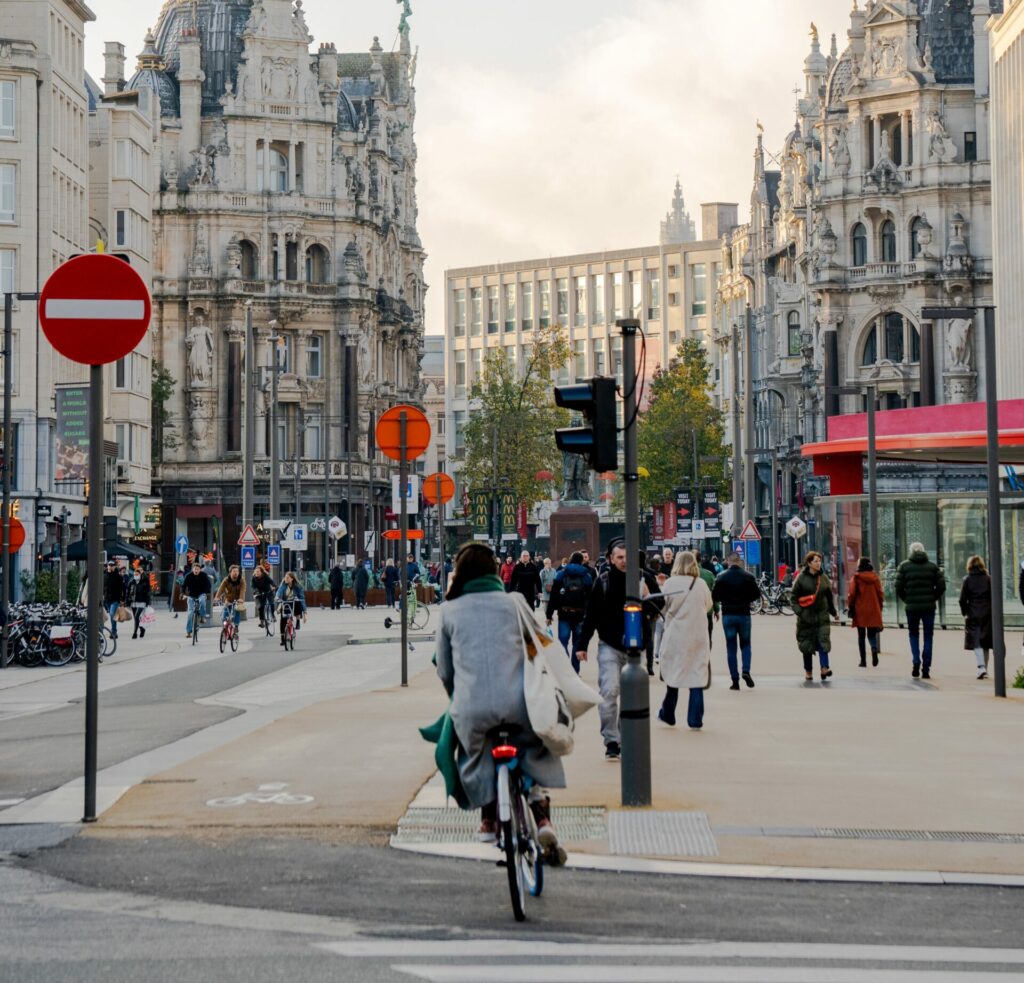Many regions in Belgium are making a push to promote cycling as the main mode of transport. Now, the province of Antwerp is getting a large network of shared electric bicycles to get the rural population out of the car, reported De Morgen.
The orange bikes from Denmark will be distributed in 40 municipalities around the city, but it remains to be seen if they will win the hearts in the countryside.
"The area in which we are rolling out this system is unique in Europe. Various foreign towns are looking to the test case, with the main question being how people in rural areas will deal with it. We are pioneers," said Antwerp Council Member Koen Kennis of the New Flemish Alliance (N-VA).
Kennis is proud of the new shared bicycle network that will be rolled out this summer in the Antwerp region, an area of 32 municipalities with more than a million inhabitants.
Related News
- Majority of cyclists believe their chosen mode of transport is 'still dangerous'
- Swapfiets celebrates 5,000 Brussels users with mural
The cycling network will stretch from Boom and Lier in the south the Dutch border in the north. "The idea is to give everyone the chance to use an electric bike," said Kennis, who is in charge of mobility in the Antwerp region.
"In recent years we have seen that batteries are getting more and more people on bicycles, but the potential is even greater. Moreover, in Antwerp we have already built up a real culture of cycling. We hope that people outside the city will now want to be part of that too."
Getting the countryside on board
A company called Donkey Republic have supplied the bikes from Denmark. They have been used in Copenhagen for years and have gaining traction in several other European cities, including Rotterdam and Amsterdam.
Although the initial offer stood at 1,400 bikes, the amount could increase as a system was worked out to allow municipalities and companies to add to the network. Local authorities have added 600 bicycles.
Moreover, the University of Antwerp has discussed with the Danes on how to make the bicycles available for students who have to travel from one side of campus to the other. One proposal is for an e-bike to cost €3 every 30 minutes, with an annual pass at €1,020. The price will be determined by the Danes in consultation with local authorities.
"I have already ridden with them myself in Copenhagen and Antwerp. It's been smooth and flexible, even with bikes that have already been several years old," said Kennis. "In that respect, they are quite robust. In Copenhagen, they are a success."
One drawback is that the batteries have a limited range compared to other electric bikes at 100 kilometers. Once they have run down to 20% of their battery, they are temporarily taken off the network.
Bikes will be distributed around the region and won't be left a fixed station. But that decision may prove controversial given the annoyance with stray e-scooters and e-bikes.
"We have drawn up strict rules," said Kennis. "You have to leave the bike in a virtual station. That is a location that is indicated on the app and marked out with lines on the ground."
"If you don't respect the drop zone, your rental just continues and you pay a fine."
Ambitious target
The city aims for half the trips around the Antwerp to be done via cycling by 2030, which would mean that the rural municipalities surrounded Antwerp are transformed.
But it may be a challenge, according to the Antwerp Cyclists' Federation. "We encourage every idea to get people on their bikes. Certainly in areas that have been cut off from shared bicycles until now," said Gert De Vuyst of the Cyclists Federation.
"At the same time, we do not know whether this is the right choice. In the city, a shared bike is interesting because you do not have to store a bike yourself. But an inhabitant of, say, Kalmthout usually has his own driveway or garage to put a
bicycle."
The Cyclists' Federation believes that other interventions would have a greater impact. "It is better to focus on safe and smooth bicycle connections and not to give priority to cars everywhere," said De Vuyst, who thinks that the cyclists will then come naturally.
However, a number of cycle lanes have been built in the province of Antwerp, noted Kennis. "Where necessary, we adjust the infrastructure to the growing volumes."

